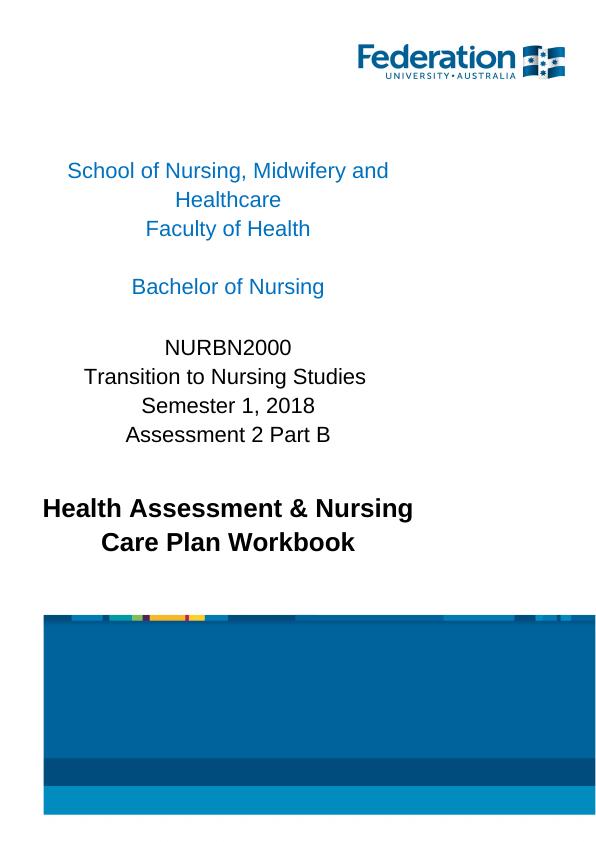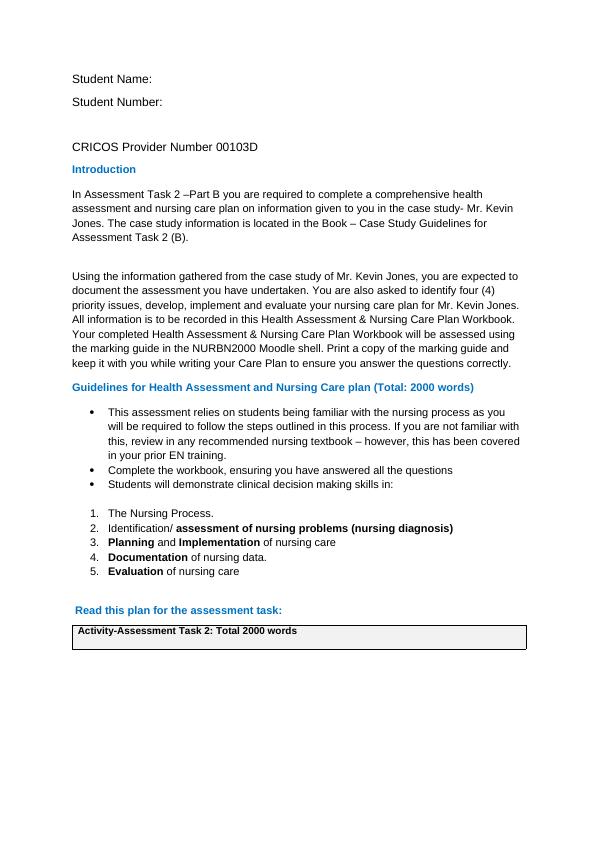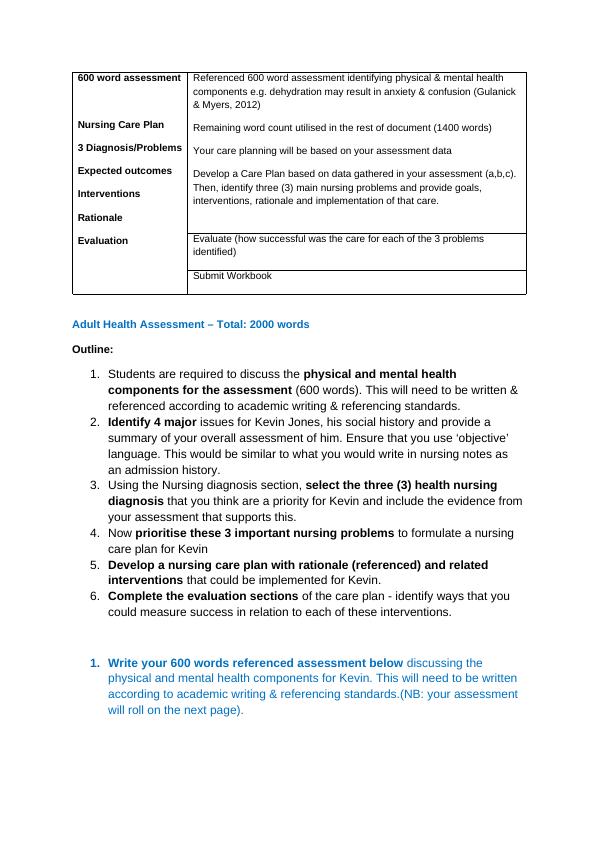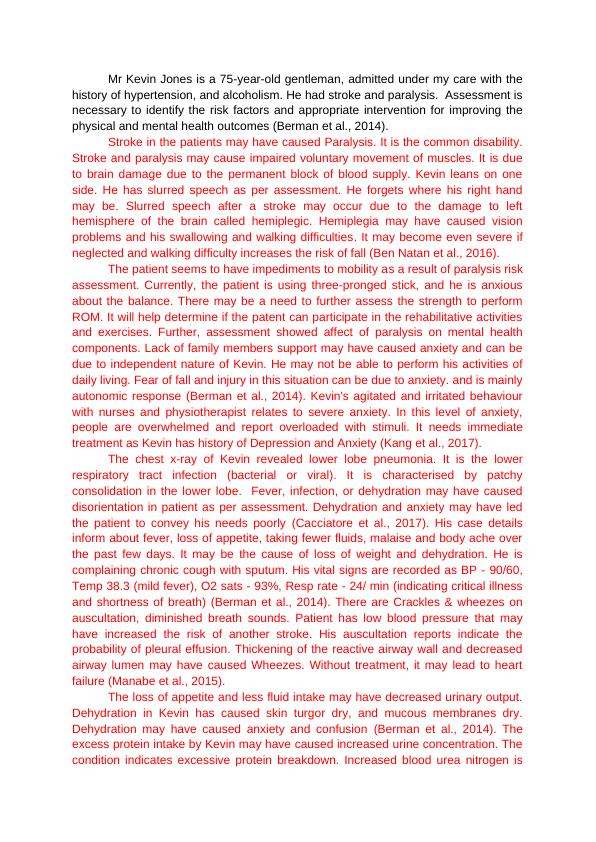Health Assessment & Nursing Care Plan Workbook for NURBN2000
Complete a comprehensive health assessment and nursing care plan for Mr. Kevin Jones, a 75-year-old stroke patient living alone in a rural location with limited finances and a history of medical conditions. Identify priority issues and develop, implement, and evaluate a nursing care plan.
15 Pages4629 Words193 Views
Added on 2023-06-15
About This Document
This is a Health Assessment & Nursing Care Plan Workbook for NURBN2000 course. It requires students to complete a comprehensive health assessment and nursing care plan on information given to them in the case study of Mr. Kevin Jones. The workbook includes guidelines for health assessment and nursing care plan, 600 word assessment, nursing diagnosis, nursing care plan and evaluation sections.
Health Assessment & Nursing Care Plan Workbook for NURBN2000
Complete a comprehensive health assessment and nursing care plan for Mr. Kevin Jones, a 75-year-old stroke patient living alone in a rural location with limited finances and a history of medical conditions. Identify priority issues and develop, implement, and evaluate a nursing care plan.
Added on 2023-06-15
ShareRelated Documents
End of preview
Want to access all the pages? Upload your documents or become a member.
NURBN2000: Transition Into Nursing Studies
|29
|4062
|102
Health Assessment & Nursing Care Plan Workbook for NURBN2000
|18
|4476
|443
Nursing Case Study Analysis with APA 7th Referencing Style
|11
|4066
|455
Assessment Task 1: Nursing | Mental State Examination Workbook
|10
|3486
|26
HLT54115 Diploma of Nursing
|9
|2294
|36
Ultrabrief Electroconvulsive Therapy For Manic Episodes
|9
|2725
|16




